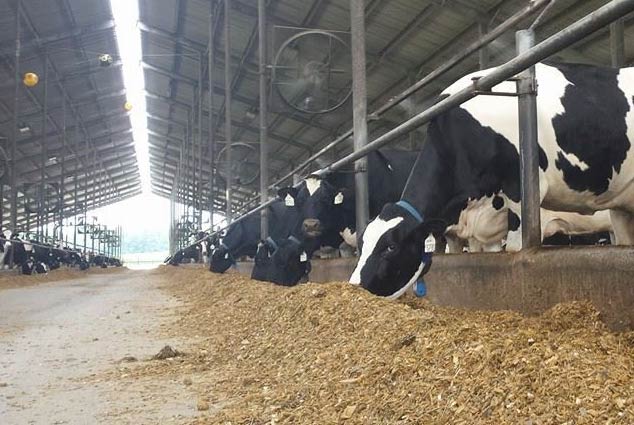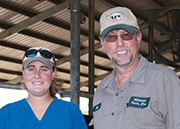
I have touched on and tiptoed around this subject a few times in my blogs, but it’s time to get serious about some of the situations farms have to face at the moment. With that being said, I think it’s best to stay alert and know as much as you can and be prepared to handle certain situations.
If you own or work on a dairy, you know finding and keeping labor can be a real struggle. Higher pay is demanded, and the milk prices are not even near the "comfort zone" right now. This is always a difficult situation in juggling great help without being able to offer the desired wages.
Some of the stories and videos I have seen coming from Florida are difficult to watch or even think about. Employees have been caught on camera being "violent" toward cows. This is a huge problem to deal with as dairy industry leaders.
We want consumers to understand how much care we give to these animals when all the while they are watching videos on Facebook and YouTube about cows being abused on dairy farms. Talking to some of the people in these communities, I learned that the employees that are doing these things are mainly new hires who probably set up these situations to film while the main managers or owners are no where to be found.
The organizations that are putting these videos out there are waging a war against some of the most caring people on the planet. We as dairy farmers have to be extremely cautious when hiring people. Also, we need to stay alert and know what is going on around our farms.
I can remember hearing stories about how we hired help in the past. Our herdsman, who recently retired, stopped on the side of the road one afternoon as he saw my Papa cutting hay. He walked up to the tractor and introduced himself and said he had some experience and asked if he needed any help around the farm. Needless to say the guy was hard at work on the farm within a couple of days with no questions asked. He stayed and worked at Hillcrest Farms until he retired.
Hiring like this is almost impossible now. Knowing everything we can about the people we hire is crucial. Even if you don’t do a full-blown background check, there are ways to find out a lot about them.
Some of these helpful ways include: 1) Facebook- Almost everyone has Facebook, and many people make their posts very personal. You can find out a lot about a person just scrolling through their page, pictures, and so forth. 2) Instagram- The same thing goes for Instagram. You can learn a lot about someone through pictures they post. 3) Past employers- Usually a standard application asks for past employers. Call these people! Learn what it was like to have this person working for them.
Using just these three things while hiring can usually help you make an opinion on the person applying. We have got to stay on top of these issues. The anti-agriculture groups have the money to keep on hitting us, while we are struggling to the max to survive these milk prices.
The worst thing to have to deal with on top of these prices is some organization targeting us about how we do not take good care of our animals when we are the ones that will be up before dawn, making sure our cows are fed, taken care of, milked, and comfortable. Keep your eyes open and don’t be oblivious of what could happen to you.

Mark and Caitlin Rodgers are dairy farmers in Dearing, Georgia. Their “Father and Daughter Dairy Together” column appears every other Thursday on HD Notebook. The Rodgers have a 400-cow dairy that averages 32,000 pounds of milk. Follow their family farm on Facebook at Hillcrest Farms Inc.
Join us next week









